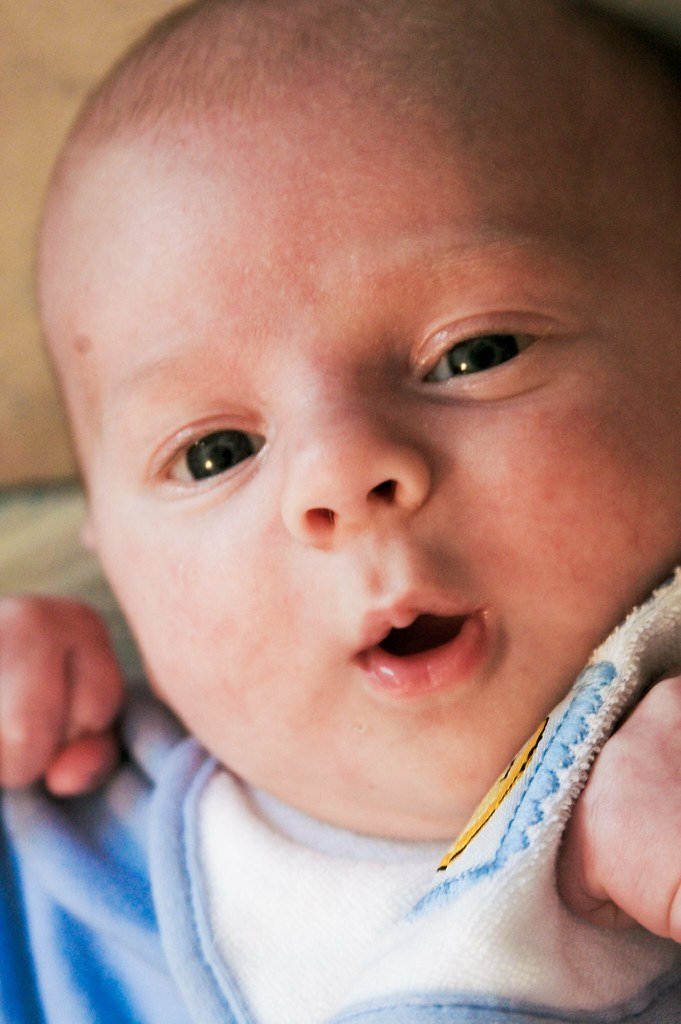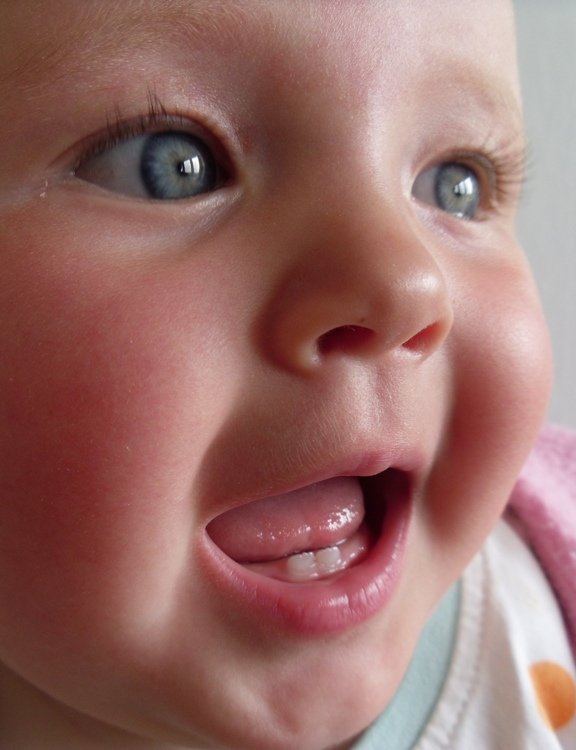One of the first scary stories I heard about newborns is the fact that they could get cold in the chest, and when that happens, it could be highly dangerous. The first time I heard the word, getting cold in the chest, I started covering my Son so much that air wasn't getting to him.
I would wear thick clothes for him and still wrap him in a blanket, a nurse saw this and advised me to stop this act to prevent overheating in the boy. I will come back to the issue of overheating later on.
 [Pexels](https://www.pexels.com/photo/woman-using-phone-with-sick-child-sleeping-in-her-arms-8376331/
[Pexels](https://www.pexels.com/photo/woman-using-phone-with-sick-child-sleeping-in-her-arms-8376331/Out of frustration, I said, I was advised by the hospital not to allow the cold to get into his chest, and now you are telling me to unwrap him as he needs fresh hair. As confused as I was, I had to get to the hospital to clarify things, and I was told overheating was a strong possibility and I had to tone things down.
My topic today is however what we term "getting cold in the chest", is that what it is, or did we just look for a myth to make mothers more careful, ride with me sweet people as we learn about this together.
A condition that makes the airways in a child's lungs narrow, therefore making it difficult for breathing to happen is called Bronchiolitis. It is a viral infection that affects children below the age of two, maybe if your child is above two years old, you no longer need to worry about this infection, we'll get to be clear on this statement as we go on.
Flickr

Bronchiolitis is often caused by respiratory syncytial virus (RSV), it can also be caused by other viruses, including those that cause flu or common cold.
This infection comes with symptoms that are regular with a common cold like cough and runny nose, it is a seasonal type of infection that occurs more during winter and early spring. While this infection may not pose any danger, it could on the other hand cause danger again, the outcome depends on how to handle things when it happens.
Bronchiolitis is the most common type of lower respiratory tract infection that exists in children below the age of two. It is a contagious type of virus, which spreads through respiratory droplets from the mouth or the nose.
When sneezing or coughing happens, these droplets become airborne and then could spread amongst people or stick to contact objects or surfaces.
You may have heard of bronchitis too which is not the same as the bronchiolitis we are talking about in this article, the condition sounds similar with similar symptoms. Both conditions are caused by a virus, which targets the airways in the lungs. The difference between them however is that Bronchitis affects the bronchitis or the larger airways, while bronchitis affects the smaller airways. Bronchitis affects children who are older and adults, while bronchiolitis on the other hand is more common amongst younger children.
The presence of Bronchiolitis infection affects the airways of a child and produces symptoms that would affect breathing such as; wheezing, rapid or shallow breathing, flaring of the nostrils, and grunting of the nose when they breathe.
Slight fever, runny nose, fatigue, and cough are other signs to watch out for, in kids most especially, you would notice fussiness or irritability. Other factors increase the risk of bronchiolitis, of them are;
An infant staying around tobacco smoke.
More contacts with more children.
Spending time with crowds.
Having siblings who go out and could bring back the infection.
A child being born prematurely.
Having a lung or heart condition.
A weak immune system makes it difficult to fight the infection.
Complications may happen with bronchiolitis too creating, low oxygen in the body, inability to drink enough liquids, causing dehydration in the infant, inability to get the required oxygen amount, known as respiratory failure, and pauses while breathing, which usually happens in premature babies or those below 2 months.
Wikipedia

To prevent the infection from spreading around, washing the hands needs to be a habit, making it a habit around the home for every member of your family to consistently wash their hands. If your child is ill, let them stay back home to prevent the spread of the virus to other children.
You need to prevent your child from staying close to people who have colds or fevers, especially if they are newborns, and most specifically if they are born prematurely. Also, ensure your surfaces and items that people constantly touch are kept clean. Your baby's toys, the doorknobs should be cleaned consistently especially when there is a sick family member.
The mouth and nose should be covered whenever you want to sneeze or cough, do not share cups or other items with other members of the family when you are ill. Sharing materials at all with an infant is not advisable. When you breastfeed more, it is less likely that the child will have respiratory issues.
Temperature control where the baby stays is also very important when it comes to the prevention of Bronchiolitis. Take your child to the hospital when there is an appearance of a cough or cold that doesn't seem to be going away, or if it comes with a fever.
At the end of the day, I figured out, maybe the cold in the chest thing isn't a cliche after all, because it could get serious, but beyond thinking it's only about covering up the child, now I know it can also be passed from one person to another.
####
https://www.webmd.com/lung/what-is-bronchiolitis
https://www.mayoclinic.org/diseases-conditions/bronchiolitis/symptoms-causes/syc-20351565
https://www.ncbi.nlm.nih.gov/books/NBK441959/
https://my.clevelandclinic.org/health/diseases/8272-bronchiolitis
https://www.ncbi.nlm.nih.gov/books/NBK441959/
https://www.ncbi.nlm.nih.gov/books/NBK519506/

Hi, I am Tobi, a writer, speaker, relationship blogger, and lover of good music. I love making friends and learning from people. If you want to hear me speak about relationships and general life issues, you can find my YouTube channel where you can watch any episode for free, please do not forget to subscribe, friends. I sincerely appreciate every love I get from here, Kindly do well to keep them coming.
Babies are quite delicate when dealing with them, it becomes important that as guardians or parents we do well to keep them well so they don't fall prey to such conditions, thanks for sharing
I am telling you, it is a requirement of a more delicate precision at this point.
Thanks for your contribution to the STEMsocial community. Feel free to join us on discord to get to know the rest of us!
Please consider delegating to the @stemsocial account (85% of the curation rewards are returned).
Thanks for including @stemsocial as a beneficiary, which gives you stronger support.